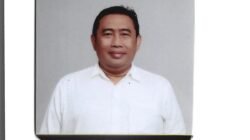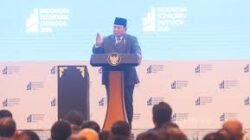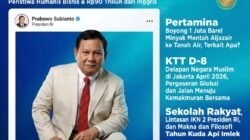Indonesiantalk.com — At the age of 21, Indonesia’s Regional Representative Council (DPD RI) once again finds itself grappling with an old question: what is its true function and meaning within the country’s political system?
DPD Chairman Sultan B. Najamudin has attempted to provide a fresh answer. For him, the council must not be seen merely as a mouthpiece for regional aspirations.
Instead, it must evolve into an institution that monitors and safeguards cross-border issues—environmental protection, climate change, and ecosystem sustainability.
“DPD RI is not only about regional matters. Beyond that, DPD must speak about climate, water, air, and ecosystems. That is a constitutional mandate,” Sultan declared during the National Dialogue titled Institutional Tracing: Weaving Visions and Perspectives for a More Empowered DPD RI, held at the Parliament Complex in Jakarta on September 30.
His statement was backed by concrete initiatives. Sultan unveiled four draft bills initiated by the DPD that have been included in the 2025 Priority National Legislation Program: the Regional Governance Bill, the Climate Change Management Bill, the Indigenous Peoples Bill, and the Archipelago Bill. This legislative package, he argued, proves that the DPD can be more than just a political symbol.
The dialogue also served as a stage for ideas. Rocky Gerung, a prominent critical thinker, highlighted the new dimension the DPD is offering. In his view, by raising environmental concerns, the DPD is not merely representing administrative regions but also ecosystems.
“You are representing elephants in Sumatra, anxious trees in Papua, or dammed rivers. That is the new philosophy of the DPD,” Rocky said.
He introduced the concept of green democracy as a global political grammar replacing outdated narratives. Democracy, he noted, is no longer solely about constitutions or financial markets but also about environmental ethics and the sustainability of life.
“The question is, can the DPD speak as a representative of the Earth, not just as a representative of regions?” Rocky challenged.
Political analyst Hendri Satrio drew attention to the DPD’s grassroots initiative, Senators for Food Security, which has been launched in four regions. From planting corn and trees to releasing fish stocks, these programs, he argued, should be communicated more widely to inspire replication across other provinces.
Constitutional law expert Andi Irman Putra Sidin added an institutional perspective. He suggested that strengthening the DPD’s authority to a level equal with the House of Representatives (DPR) and the presidency is possible if the council improves its internal capacity.
“We need five strong figures in the DPD to push for this. But the institution must first undergo serious training over the next two years,” he said.
For his part, Sultan laid out eleven political reform proposals. These include the creation of a National Legislation Council involving the DPR, DPD, government, academics, and civil society; granting senators the right to nominate independent candidates in regional elections; and even the controversial idea of four vice presidents representing Indonesia’s sub-regions.
He also stressed the urgency of reinstating national development guidelines (PPHN) through the People’s Consultative Assembly (MPR) to ensure long-term policy consistency.
“Political reform must aim to deliver substantive democracy, not just procedural democracy,” Sultan said.
The DPD’s bold steps raise a lingering public question: can it break through the dominance of the DPR and the executive branch? Will the ideas of green democracy and political reform bear fruit, or will they fade into institutional rhetoric?
Sultan remains optimistic. “DPD RI must be redefined as the second chamber in Indonesia’s constitutional system. Its presence is not symbolic but a real necessity to ensure that the voices of regions and ecosystems are not lost in the noise of central politics.”
Yet the true test will be consistency. Behind slogans and visionary proposals, the public is waiting for tangible proof—that the DPD represents not only people, but also a planet in crisis.
Sultan has also floated the idea of stricter requirements for future DPD members. Candidates, he argued, should possess a strong record of public service, broad national insight, and ideal capabilities.
“This nation is beginning to realize the need for political reform and the strengthening of democratic institutions, as envisioned in President Prabowo’s Asta Cita,” Sultan said.
He stressed that strengthening the DPD is a vital part of democratic consolidation, requiring the institution to improve and upgrade its internal capacity.
“The DPD is supposed to be a Senate with a strategic role in the constitutional system. But if anyone can run without strict recruitment mechanisms, the institution will lose its relevance,” he warned.
Sultan suggested that eligibility criteria might include prior service as state officials or regional leaders, with a clean legal record. Although still a proposal, he said these ideas are detailed in his forthcoming book, Green Democracy.
“We want the DPD to become a home of statesmanship and a breeding ground for future national leaders—not merely a gathering place for regional figures relying on popularity and money,” he concluded.
source: https://matranews.id/dialog-kenegaraan-dan-kebangsaan-21-tahun-dpd-ri-napak-tilas-kelembagaan/








